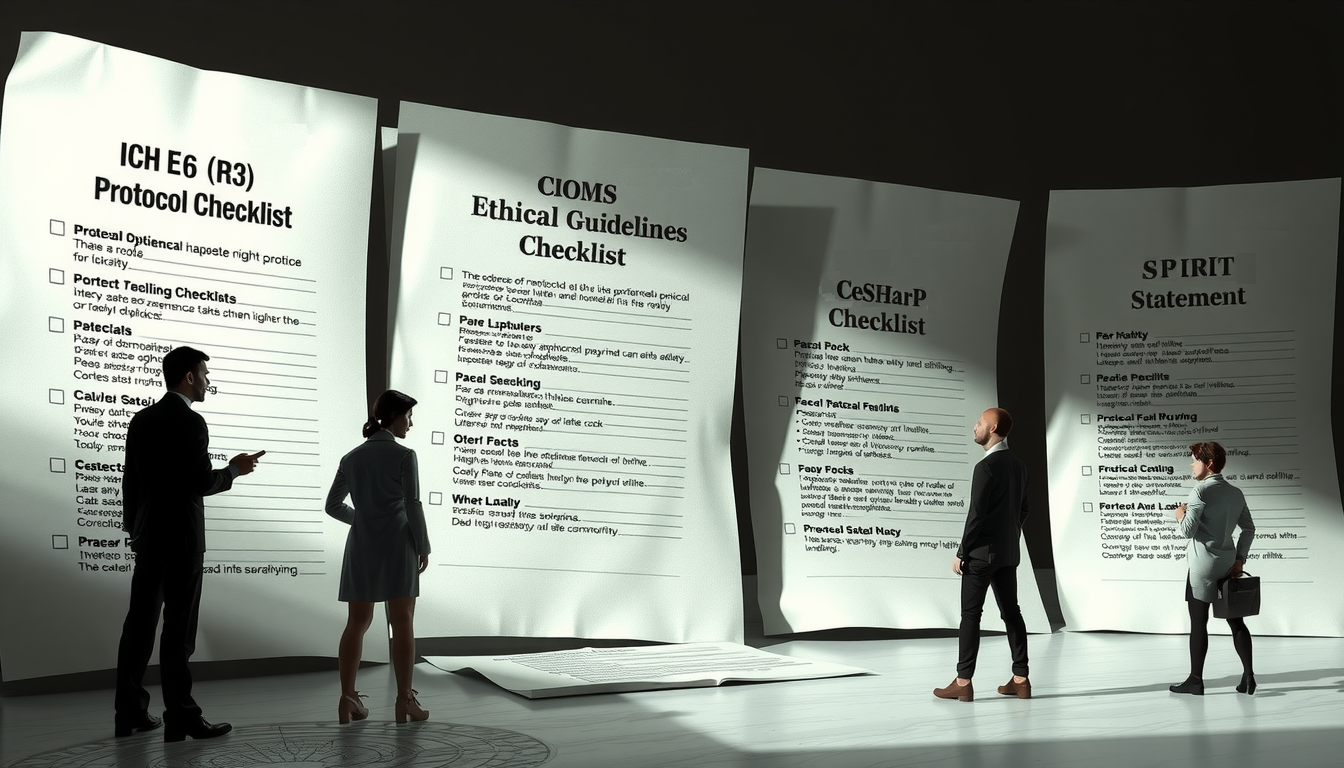- Knowledge Hub
- Magazin
Clinical Research Magazin
Unser Leitfaden zur klinischen Forschung enthält hilfreiche Informationen und Einblicke darüber, wie klinische Studien jetzt und in Zukunft durchgeführt werden.

How Germany is boosting Clinical Research: Part 1 - Standard Contractual Clauses
Germany is ready for a spirit of optimism, thanks to the government, which has recognized the importance of research-based pharmaceutical companies as a key industry. It aims to reduce the bureaucratic burden in order to become a more attractive location for clinical trials again, for example by enshrining Standard Contractual Clauses into German law.
![[Translate to Deutsch:] [Translate to Deutsch:]](/fileadmin/user_upload/Intro-1b.jpg)
Magazinartikel Beispiel
This is an exemplary article reader.

GCP Snippets: A Treatise of Essentiality in Two Lists
In summary, we see tracks of improvements of the criteria used for Essential Documents in the new ICH E6 (R3), but we have to see how ICH E6 (R3) Annex 1, Appendix C is handled in the practice of audits and inspections.

GCP Snippets: Investigators Out of Site
While the mid-90ies version of ICH E6 depicted the informed consent with pen and paper the brand new ICH E6 (R3) shows that it can handle cutting edge technology with ease. In line with this, the "investigators" are released from their vintage study centers...

GCP Snippets: Copies Without Originals
ICH E6 (R3) features an inconspicuous, but troublesome concept called “certified copy” but does not define what “the original” is and for many documents it is hard to classify them as originals or copies.

GCP Snippets: Facing Patient Facing Documents
Does ICH E6 (R3) protect participants more than the EU Clinical Trials Regulation against rogue documents? Come with us on a bumpy ride from ICH GCP to the EU rules and back.

GCP Snippets: Protocol checklists in competition
Although ICH E6 (R3) does not feature a fully comprehensive checklist of all possible and all necessary protocol elements, it contains the most widely employed description of general protocol content.

GCP Snippets: Compliance with the unknown
Usually sponsors and investigators confirm compliance by signing on a dotted line beneath this very statement. But do they actually comply with ICH GCP, are they enabled to comply, and could they know how to comply?

GCP Snippets: From subtext to metadata
ICH E6 (R3) has a completely new chapter, which is called “Data governance – investigator and sponsor”. You might wonder whether this new chapter was added to ICH GCP to address issues that emerged as being critical in real life – or if it was added to codify an emerging practice.

GCP Snippets: Is ICH GCP applicable in the European Union (and elsewhere)?
ICH GCP is not dead, even in Germany it is alive and kicking. In 2024, the inspection reports of a German authority for a clinical trial that is subject to the CTR made numerous references to ICH E6, but none to the CTR (!). Let's dissect the applicability of ICH GCP as far as possible.

Podcast mit Martin Krauss: Wie der deutsche Standard of care klinische Studien beeinflusst
Entdecken Sie die Top-Erkenntnisse aus Maya Zlatanovas Podcast „Trials with Maya Z“, zu Gast war Martin Krauss, Geschäftsführer der FGK Research. Die beiden sprechen zum Thema „Auswirkung des deutschen Pflegestandards auf klinische Studien".

Effiziente Patientenrekrutierung ist ein wichtiger Faktor für erfolgreiche klinische Studien
Ursula Türcke stellt Strategien vor, wie sich Herausforderungen bei der Rekrutierung von Patienten für klinische Studien bewältigen lassen. Dabei legt sie den Schwerpunkt auf Zusammenarbeit, frühzeitige Planung und patientenorientierte Lösungen.

Wie kleine und mittelgroße Sponsoren die richtige CRO finden können
Dieser Artikel bietet kleinen und mittelgroßen Sponsoren praktische Anleitungen zur Auswahl des richtigen CROs und betont dabei die Bedeutung von Fachwissen, Stabilität und Zusammenarbeit für erfolgreiche Studien.

Moderne Ansätze im Management: Ursula Türcke
Entdecken Sie dieses Interview über moderne Managementansätze und die Bedeutung einer Work-Life-Balance mit Ursula Türcke als Teil der Artikel „Women in Pharma“ in der Zeitschrift „International Clinital Trials“.
